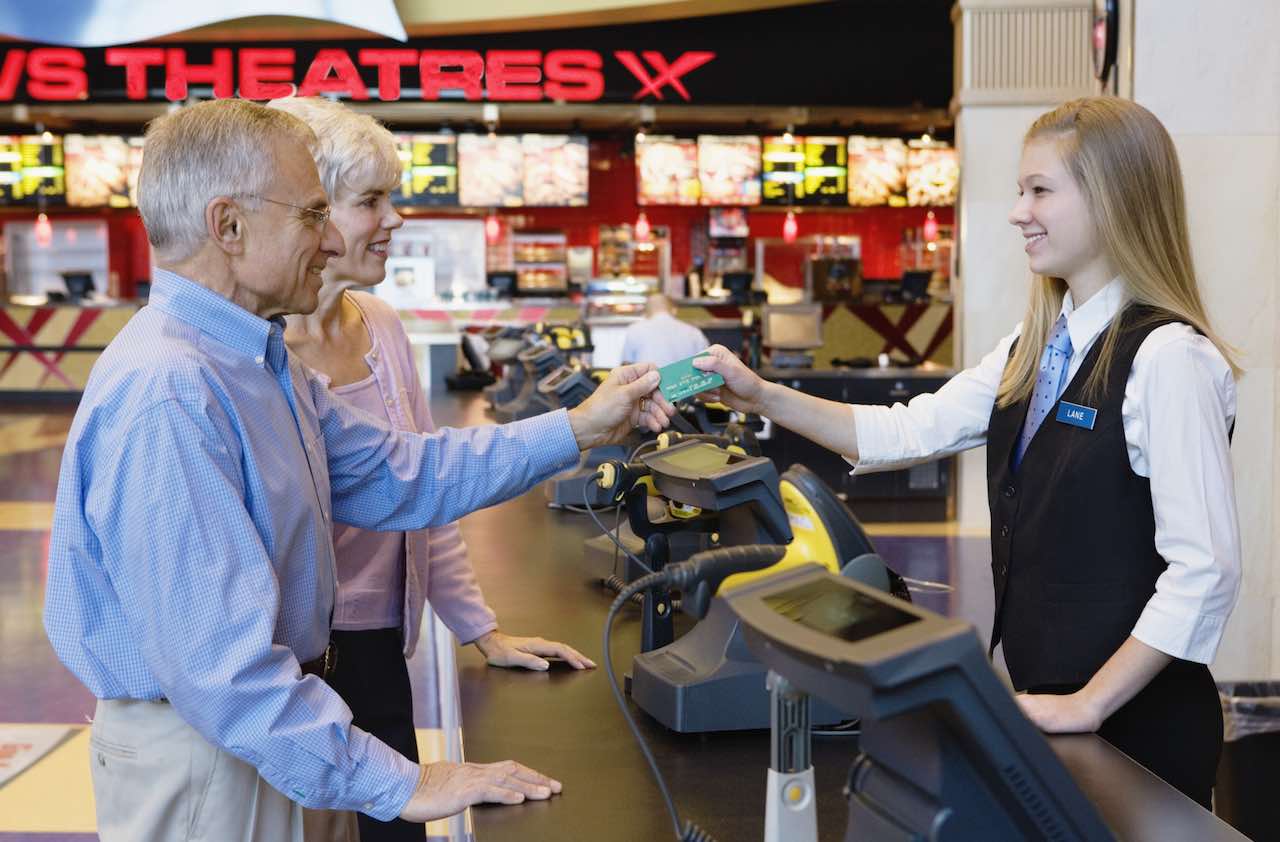Scale Back These Discounts for Seniors
Senior discounts given out by governments--if lacking a screen for income--constitute a broad subsidy of all elderly citizens by taxpayers, many of whom are younger and less well-off.


Profit and prosper with the best of Kiplinger's advice on investing, taxes, retirement, personal finance and much more. Delivered daily. Enter your email in the box and click Sign Me Up.
You are now subscribed
Your newsletter sign-up was successful
Want to add more newsletters?

Delivered daily
Kiplinger Today
Profit and prosper with the best of Kiplinger's advice on investing, taxes, retirement, personal finance and much more delivered daily. Smart money moves start here.

Sent five days a week
Kiplinger A Step Ahead
Get practical help to make better financial decisions in your everyday life, from spending to savings on top deals.

Delivered daily
Kiplinger Closing Bell
Get today's biggest financial and investing headlines delivered to your inbox every day the U.S. stock market is open.

Sent twice a week
Kiplinger Adviser Intel
Financial pros across the country share best practices and fresh tactics to preserve and grow your wealth.

Delivered weekly
Kiplinger Tax Tips
Trim your federal and state tax bills with practical tax-planning and tax-cutting strategies.

Sent twice a week
Kiplinger Retirement Tips
Your twice-a-week guide to planning and enjoying a financially secure and richly rewarding retirement

Sent bimonthly.
Kiplinger Adviser Angle
Insights for advisers, wealth managers and other financial professionals.

Sent twice a week
Kiplinger Investing Weekly
Your twice-a-week roundup of promising stocks, funds, companies and industries you should consider, ones you should avoid, and why.

Sent weekly for six weeks
Kiplinger Invest for Retirement
Your step-by-step six-part series on how to invest for retirement, from devising a successful strategy to exactly which investments to choose.
Q. I’m in a circle of friends who are all elderly and well-off financially. Most of us are pleased to accept senior-citizen discounts for hotels, movies, museums and mass transit, but one member of our group says we should turn them down and pay full price. She argues that we have less need than most young adults, who can’t get such discounts. What do you think?
A. I like your friend’s thinking. As I wrote in a 2008 "Money & Ethics" column, “Discounts for seniors go back to an era when most elderly Americans were less well-off than their fellow citizens. That’s no longer the case, but the discounts linger.”
I see a key distinction, however, between senior discounts offered by commercial companies—hotels, theaters, restaurants and the like—to attract your business, and discounts offered by governments and private nonprofits out of a sense of compassion for seniors who are struggling financially.
From just $107.88 $24.99 for Kiplinger Personal Finance
Become a smarter, better informed investor. Subscribe from just $107.88 $24.99, plus get up to 4 Special Issues

Sign up for Kiplinger’s Free Newsletters
Profit and prosper with the best of expert advice on investing, taxes, retirement, personal finance and more - straight to your e-mail.
Profit and prosper with the best of expert advice - straight to your e-mail.
The revenue forgone in discounting by a business comes out of the profits of its owners, and they are free to subsidize any customers they wish (whether seniors, students, military, clergy or frequent buyers). But senior discounts given out by governments—if lacking a screen for income—constitute a broad, unjustified subsidy of all elderly citizens by taxpayers, many of whom are younger and less well-off.
For example, Washington, D.C., and the state of New Jersey allow seniors to travel on their rapid-transit systems for about half the normal fare. Chicago waives the public sewer charge for seniors living in single-family homes. The federal government allows seniors with a $10 lifetime pass to use national parks free, with 50% discounts on many of the amenities. New Jersey gives discounts to elderly hunters and fishermen. And the list goes on.
None of these discounts requires senior citizens to show that they have financial need. Replacing an age screen with proof of need, however a government wishes to define that, would put all such discounts on an ethical footing.
Have a money-and-ethics question you’d like answered in this column? Write to editor in chief Knight Kiplinger at ethics@kiplinger.com.
Profit and prosper with the best of Kiplinger's advice on investing, taxes, retirement, personal finance and much more. Delivered daily. Enter your email in the box and click Sign Me Up.

Knight came to Kiplinger in 1983, after 13 years in daily newspaper journalism, the last six as Washington bureau chief of the Ottaway Newspapers division of Dow Jones. A frequent speaker before business audiences, he has appeared on NPR, CNN, Fox and CNBC, among other networks. Knight contributes to the weekly Kiplinger Letter.
-
 5 Vince Lombardi Quotes Retirees Should Live By
5 Vince Lombardi Quotes Retirees Should Live ByThe iconic football coach's philosophy can help retirees win at the game of life.
-
 The $200,000 Olympic 'Pension' is a Retirement Game-Changer for Team USA
The $200,000 Olympic 'Pension' is a Retirement Game-Changer for Team USAThe donation by financier Ross Stevens is meant to be a "retirement program" for Team USA Olympic and Paralympic athletes.
-
 10 Cheapest Places to Live in Colorado
10 Cheapest Places to Live in ColoradoProperty Tax Looking for a cozy cabin near the slopes? These Colorado counties combine reasonable house prices with the state's lowest property tax bills.
-
 Should All Student Debt Be Forgiven?
Should All Student Debt Be Forgiven?student loans My favorite reform would be making the repayment of all student loans proportional to the borrower’s future earnings.
-
 Should Lenders Mail Unsolicited Checks to Potential Borrowers?
Should Lenders Mail Unsolicited Checks to Potential Borrowers?credit & debt When it comes to preying on weak credit risks, it looks like Wall Street is at it again.
-
 Do Adult Children Have an Obligation to Support Needy Parents?
Do Adult Children Have an Obligation to Support Needy Parents?savings Even if some siblings can afford to help more than others, no one should shirk the obligation to assist in some way -- financial or otherwise.
-
 How Can the Approval Process for New Drugs Be Speeded Up?
How Can the Approval Process for New Drugs Be Speeded Up?investing There are many reform proposals, including some from free-market think tanks.
-
 Should Ethics Determine Who You Do Business With?
Should Ethics Determine Who You Do Business With?Smart Buying Consumers seeking to do business only with ethical companies should ask these questions.
-
 Should Colleges Use Collection Agencies for Overdue Student Bills?
Should Colleges Use Collection Agencies for Overdue Student Bills?college Colleges have many potent options for getting students to square their accounts.
-
 Hold Soda Makers to Account for Health Woes?
Hold Soda Makers to Account for Health Woes?Business Costs & Regulation A strong case can be made that it’s unethical for companies to target the very customers who shouldn’t be heavy consumers of a given product.
-
 Ways to Protect Borrowers From Predatory Home Lending
Ways to Protect Borrowers From Predatory Home Lendingreal estate Land contracts drain low-income communities of resources.